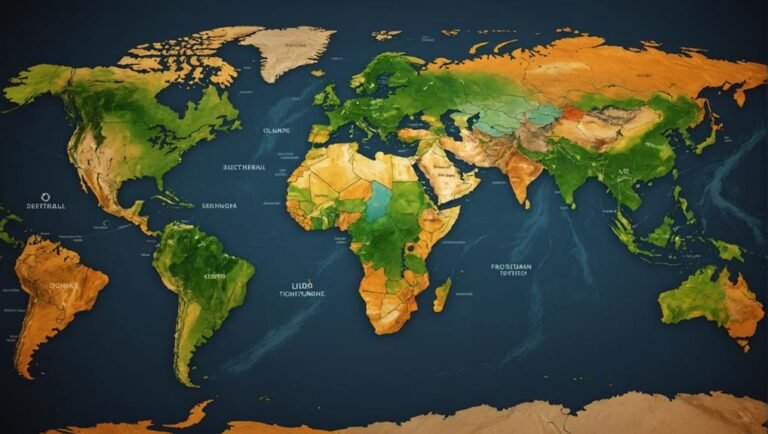Certificate of Origin (CO): Definition, Types, and How to Get One
A Certificate of Origin (CO) is an official document that verifies the country of origin for goods, essential in international trade. There are various types, including nonpreferential, ordinary, and preferential COs, each with specific uses. Obtaining a CO involves a meticulous application process, including detailed goods information submission and verification by the Chamber of Commerce. Preferential COs are especially important as they enable tariff reductions and promote economic cooperation. Digitalization has streamlined the CO application process, making it more efficient. Understanding COs is vital for effectively managing international trade regulations.
Key Takeaways
- CO certifies product origin for international trade.
- Types include nonpreferential, ordinary, and preferential COs.
- Obtain CO through meticulous application and verification process.
- Preferential COs offer reduced tariffs under FTAs.
- Digitalization enhances CO application efficiency and accuracy.
Definition of Certificate of Origin
A Certificate of Origin (CO) is an official document that serves to certify the country of origin of imported goods, providing essential information for international trade transactions.
CO requirements typically include details such as the exporter and importer information, a description of the goods, and the specific country of origin.
The benefits of a CO are numerous, including compliance with importing country regulations, eligibility for reduced tariffs based on trade agreements, and the prevention of fraudulent trade practices.
By accurately documenting the origin of goods, COs play a vital role in promoting transparency, ensuring fair trade practices, and facilitating smooth cross-border transactions.
Businesses and exporters must adhere to CO regulations to benefit from the advantages it offers in international trade.
Types of COs and Distinctions
The classification of Certificates of Origin (COs) according to their types and distinctions offers a comprehensive understanding of the documentation requirements important for international trade compliance and tariff exemptions. There are different types of COs, each with specific benefits and implications. These distinctions are vital for exporters seeking tariff reductions and compliance with trade agreements. Below is a table summarizing the key differences between the various types of COs:
| Type of CO | Description |
|---|---|
| Nonpreferential COs | Do not qualify for reduced tariffs |
| Ordinary COs | Used in the absence of trade agreements |
| Preferential COs | Qualify for reduced tariffs under FTAs |
Understanding these CO classifications is essential for exporters maneuvering international trade regulations effectively.
Process of Obtaining a CO
Upon initiation of the process of obtaining a Certificate of Origin (CO), exporters are required to adhere to a meticulous and structured application procedure. The application process typically involves detailed submission of information regarding the goods, including their description, value, and country of origin.
Once the application is completed, the next step involves chamber verification. This verification is important as it confirms the authenticity of the information provided by the exporter. The chamber of commerce plays a significant role in ensuring that the CO meets all necessary requirements before being issued.
Importance of Preferential COs
In international trade, the significance of Preferential Certificates of Origin (COs) lies in facilitating tariff reductions and promoting economic cooperation among participating countries. Preferential COs offer preferential treatment to goods qualifying under free trade agreements, allowing for reduced tariffs between countries. They are essential for promoting trade cooperation and are specifically used when goods qualify for tariff reductions.
These certificates differ from ordinary COs in trade agreement contexts, highlighting the importance of preferential treatment in fostering mutually beneficial trade relationships. By utilizing Preferential COs, countries can encourage trade growth, enhance economic ties, and create a more conducive environment for international commerce.
- Facilitate tariff reductions
- Promote economic cooperation
- Offer preferential treatment
- Encourage trade growth
- Enhance economic ties
Digitalization and CO Application
Digital transformation has revolutionized the process of applying for Certificates of Origin, streamlining the submission and certification procedures for exporters seeking to authenticate the country of origin for their goods. Online submission platforms provided by many countries have simplified the application process, allowing exporters to submit their documentation electronically.
Upon submission, the Certificate of Origin can be swiftly verified by a chamber of commerce, often receiving certification within a day. This digitalization not only expedites the process but also enhances efficiency and accuracy in verifying the origin of goods.
Conclusion
To sum up, Certificates of Origin are indispensable tools in international trade, serving as the compass for tracing the origins of goods.
Like a meticulous detective unraveling a complex case, COs meticulously document the journey of products, ensuring compliance with trade regulations and ethical standards.
By understanding the nuances of COs, businesses can navigate the intricate landscape of global trade with precision and confidence.







